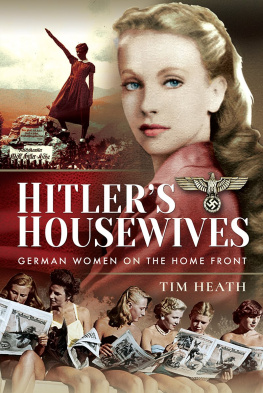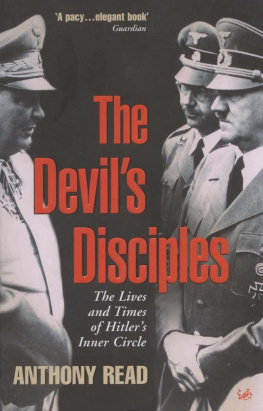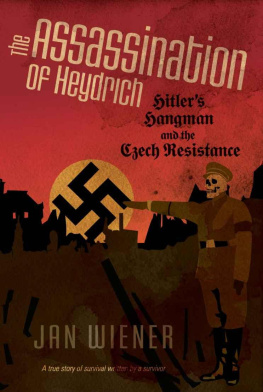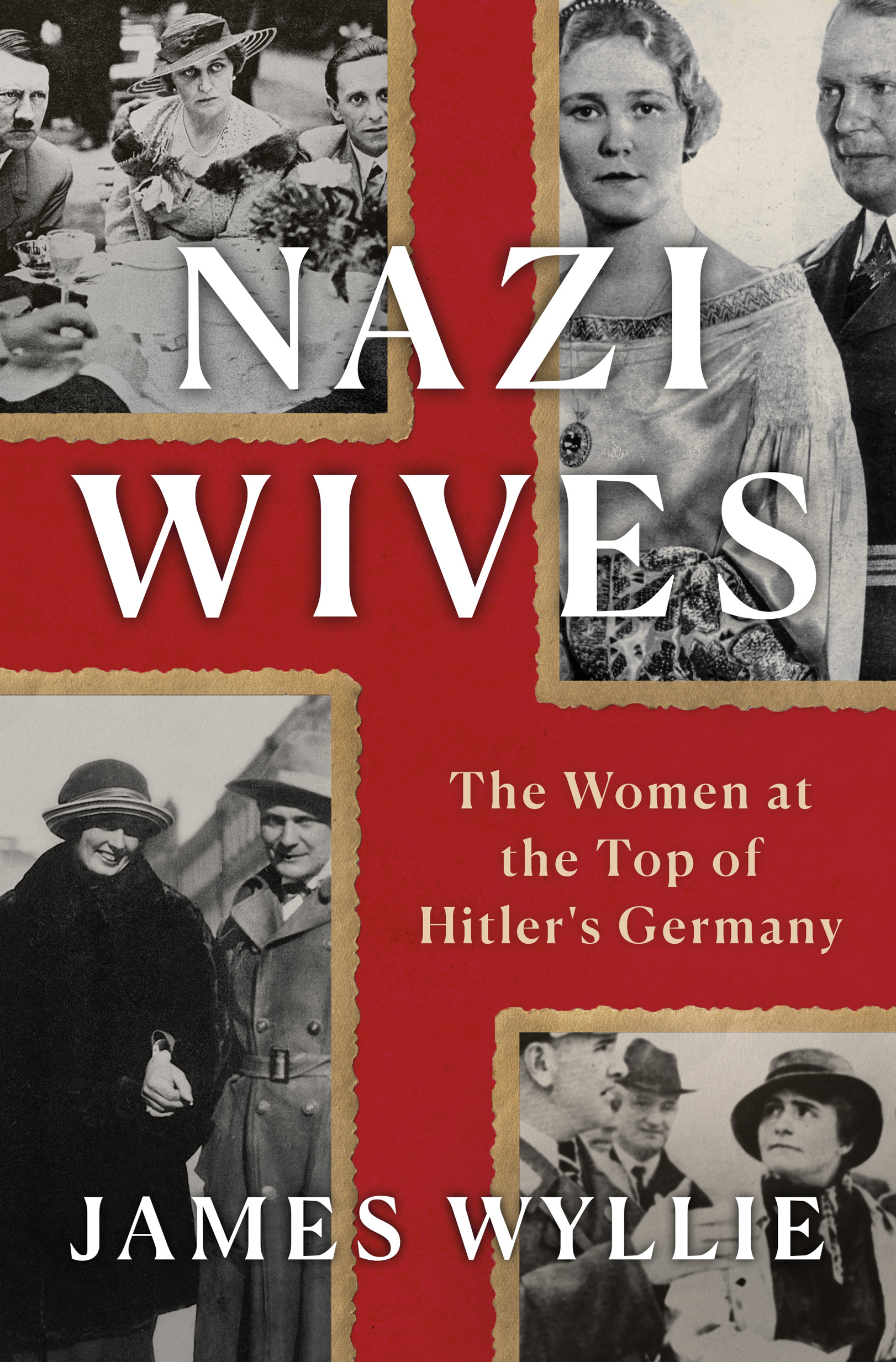The author and publisher have provided this e-book to you for your personal use only. You may not make this e-book publicly available in any way. Copyright infringement is against the law. If you believe the copy of this e-book you are reading infringes on the authors copyright, please notify the publisher at: us.macmillanusa.com/piracy.
I would like to thank my agent, Sonia Land, at Sheil Land Associates Ltd for her unswerving commitment and support, and Gaia Banks and the foreign rights team for getting this book out into the world. Thanks are also due to Laura Perehinec at The History Press for her enthusiasm and dedication, to Alex Waite for helping turn my manuscript into a book, and to the whole The History Press team for their excellent work. Finally, Id like to thank my friends and family; without their loyalty and generosity this book would not have been possible.
On the evening of 10 July 1937 the German-Jewish journalist Bella Fromm, who wrote the society column in a Berlin newspaper, went to the cinema to see the romantic comedy Broadway Melody. Loosely based on the 1929 original, it included the hit song You Are My Lucky Star, a bunch of characters trying to launch a Broadway show, farcical backstage intrigues and glamorous locations penthouse apartments and rooftop pavilions and a finale featuring two grand pianos gliding across the dancefloor next to a tap-dancing chorus line dressed in top hats and tails.
Arriving at the cinema, Bella parked her car and then suddenly noticed that shed aroused the interest of two SS men. One of them noted down her licence plate while the other pointed his camera at her and took a quick snap-shot. The reason for this level of surveillance became clear when several large automobiles with swastika pendants pulled up. Heinrich Himmler and his wife Margaret got out and entered the cinema, accompanied by their grim bodyguard. Once inside, Himmler and Margaret took their seats flanked by his angels of death and settled in for 101 minutes of fun and frolics. This surreal, almost comic scene is also rather unsettling given how Himmler is generally perceived: a humourless pedant and ruthless zealot obsessed by crackpot fantasies about a Germanic master race.
So why did he take Margaret to see a light-hearted MGM musical? Unlike others in the Nazi elite including Hitler Himmler wasnt a film buff eager to consume the latest Hollywood releases. Perhaps he fancied some carefree escapism to take his mind off the daily grind. Or did he view the film with a critical eye, regarding it as an example of the degenerate decadence of American society? Or maybe he was simply trying to please his wife. From the start, his long working hours and almost constant travelling had taken a heavy toll on their marriage. This was a rare opportunity to have a night out together. Dress up. Summon a fleet of cars and a uniformed escort. Treat her to a feel-good movie.
Sadly, we dont know if Margaret enjoyed Broadway Melody, or if she was pleased her husband had found time to indulge her; perhaps the most thrilling part of her evening was cruising the streets of the capital in an SS convoy, sending ripples of fear and awe through everyone who saw them speed past.
Among the thousands of books about Nazism barely a handful focus on the wives of the leading figures in Hitlers regime: Gerda Bormann, Magda Goebbels, Carin and Emmy Goering, Ilse Hess, Lina Heydrich and Margaret Himmler. While their men have left an indelible imprint on our collective memory the women who gave them vital support, encouragement and direction have largely remained relegated to the footnotes of history. While the overall experience of women in the Nazi period became a subject of serious study during the 1980s, opening up a whole field of enquiry and providing a complex and nuanced picture that challenged the stereotypes perpetuated by Nazi propaganda, the women at the very top of the system have been neglected.
Part of the reason for this is the nature of the source material, much of which has to be treated with caution. Although a lot more information has come to light in the last few decades, there are still considerable gaps and chunks of time missing from the diaries and letters that have survived, while the post-war autobiographies penned by several of the wives actively sought to portray their husbands as paragons of virtue and themselves as innocent bystanders; the memoirs and recollections of fellow travellers each with their own agenda have created an echo chamber of anecdotes, hearsay and gossip that make it harder to distinguish fact from fiction.
However, these sorts of issues affect any investigation into the past and are not sufficient to explain why historians have failed to give these women the prominence they deserve, thereby giving credence to their own claims that there was a clear distinction between their husbands public and private lives. But this does not bear scrutiny. The Nazis set out to control every aspect of their citizens existence the food they ate, the clothes they wore, who they had sex with, what jokes they could tell, how they celebrated Christmas making any separation between the public and the private meaningless. And despite their undoubted privilege, the wives were subjected to the same pressures as ordinary women. Their social lives were determined by political considerations. Friendships were jettisoned. Relationships even with family members abruptly terminated. Their behaviour was a factor in the struggles within the Nazi elite, particularly where Hitler was concerned; falling out of favour with the Fhrer could have serious implications for their husbands careers.
Even though they might not have been privy to their husbands daily decisions, the evidence of their murderous work was all around: the looted art on the walls; the furniture made from human skin and bones stashed in the attic; the fruit and vegetables taken from the local concentration camp gardens; the slave labour tilling their land. The rituals of family life births, weddings, funerals were inextricably linked to Nazi ideology. Perhaps this is why it has proved easier to take these women at face value and treat them as minor characters; treating them seriously means accepting that their husbands engaged in normal activities and experienced recognisably human emotions. Falling in and out of love. Worrying about the bills and their weight and where to send the kids to school. Planning dinner parties and picnics. Spending vacations sightseeing. Acknowledging that in many respects they were no different from the rest of us creates a form of cognitive dissonance: a deeply uneasy feeling.
Yet their story offers important insights into the nature of Nazi rule and the psychology of its leaders, providing a fresh perspective on the key events that shaped its rise and fall. The aim of this book is to chart their lives from the moment they became involved in the Nazi movement in several cases before they even met their husbands through the years of struggle, power, decline and destruction, and then into the post-war twilight of denial and delusion. While they enjoyed luxury lifestyles and VIP status, they also endured broken marriages, cheating husbands, suicide, assassination, desertion, impoverishment and incarceration. But despite all these trials and tribulations, their commitment to Hitlers cause never wavered.















